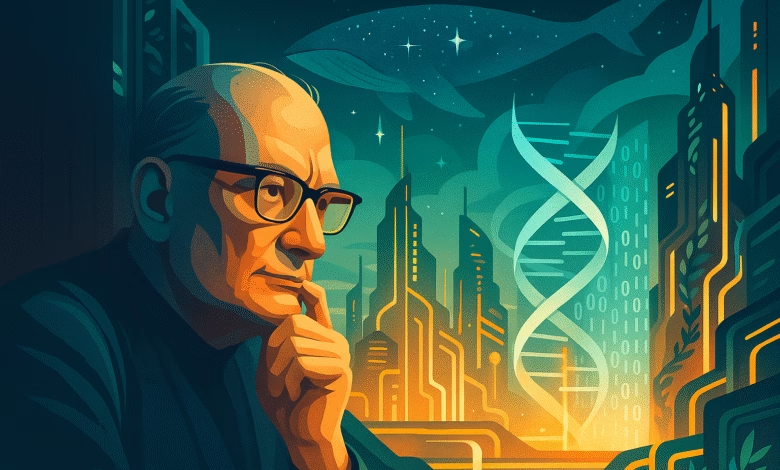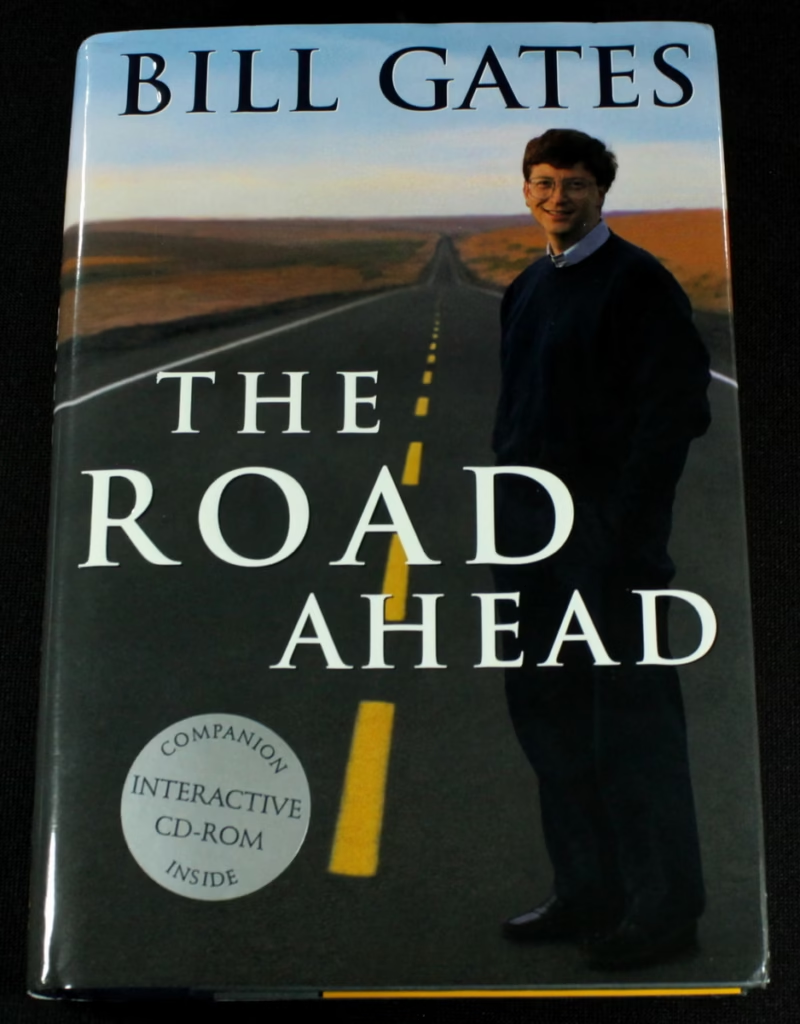
▼ Summary
– Arthur C. Clarke warned that accurate future predictions often sound absurd initially, as true innovation defies current expectations.
– He foresaw remote work and global connectivity, predicting physical location would become irrelevant due to communication technology.
– Clarke envisioned bioengineered intelligent animals and machines surpassing human intelligence as the next evolutionary step.
– His concept of a “replicator” anticipated technologies that could eliminate scarcity by duplicating objects.
– Clarke’s ideas, like geostationary satellites, were initially dismissed but later became foundational to modern advancements.
Sixty years ago, standing amidst the technological marvels of the 1964 New York World’s Fair, science fiction titan Arthur C. Clarke offered a stark warning about predicting the future. “Trying to predict the future is a discouraging and hazardous occupation,” he stated, his words captured by a BBC camera. His reasoning was a classic Catch-22: if a prediction sounds reasonable, technological progress will likely make it seem “ridiculously conservative” within decades. Conversely, if a prophet somehow described the future exactly as it would unfold, the predictions would sound “so absurd, so far-fetched, that everybody would laugh him to scorn.” Clarke’s benchmark for a truly insightful forecast? “Only if what I tell you appears absolutely unbelievable have we any chance of visualizing the future as it really will happen.”
The City of Tomorrow Today
Clarke then turned his gaze to the future city. He acknowledged a model of a futuristic metropolis, remarking that “everything you see now already exists, all the materials, all the ideas.” This concept city, he suggested, could be built immediately. His point was clear: what often passes for futuristic urban planning is frequently an extrapolation of current capabilities.
However, he ventured further, to the city of “the day after tomorrow,” perhaps the year 2000. Here, his vision became more radical. Driven by breakthroughs in communications, the transistor and, crucially, the communications satellite, Clarke foresaw a world where physical location would become almost irrelevant for work. “It will be possible in that age, perhaps only 50 years from now, for a man to conduct his business from Tahiti or Bali just as well as he could from London,” he mused. The traditional role of the city as a physical meeting place would diminish. “Men will no longer commute; they will communicate.” The striking accuracy of this particular “unbelievable” prediction resonates deeply today, as remote work and global digital connectivity reshape our lives.
Echoes of Foresight From Clarke to Gates

Clarke’s emphasis on the transformative power of communication technology found a distinct echo decades later. In November 1995, Bill Gates, in his book “The Road Ahead,” painted a picture of an internet-connected world that, to many at the time, seemed ambitious, if not entirely fanciful. Gates envisioned a global information network transforming commerce, education, and social interaction. Like Clarke’s pronouncements on instant global contact, Gates’ vision of a pervasive internet has largely materialized, proving that truly significant shifts often appear improbable before they become indispensable.
Beyond Human The Intelligent Frontier
Clarke did not stop at interconnected humans. His 1964 predictions ventured into territories that remain “unbelievable” for many even now. He spoke of “bioengineering,” the development of intelligent animal servants, particularly among great apes and marine mammals like dolphins and whales. “It is a scandal of which we should be thoroughly ashamed that prehistoric man tamed all the domestic animals we have today. We haven’t added one in the last 5,000 years,” he lamented, suggesting our knowledge of genetics and animal psychology could change this.
More profoundly, he posited that the most intelligent inhabitants of a future world would not be men or bioengineered animals, but machines,the descendants of computers. He acknowledged that contemporary electronic brains were “complete morons” but foresaw a generation where they would “start to think and eventually…completely outthink their makers.” This, he suggested, was not depressing but a natural step in evolution, with humanity serving as “stepping stones to higher things.” He even touched upon concepts like “suspended animation” for interstellar travel and medical treatment, and “planetary engineering” to make other worlds habitable. His ultimate far-future invention? The “replicator,” a machine capable of duplicating any object, an idea that would render scarcity, and perhaps much of our economic structure, obsolete.
The Agentic Dawn And Our Unbelievable Now
Clarke’s challenge, to accept the “unbelievable” as a prerequisite for grasping the future, is more pertinent than ever. Today, we stand at the cusp of another wave of transformations driven by artificial intelligence. Concepts like Agentic AI, systems that can autonomously pursue complex goals, or “AI scientists” capable of independent research and discovery, are moving from theoretical discussions to tangible development. These advancements, which might have seemed like pure science fiction even a decade ago, align perfectly with Clarke’s assertion that the truly impactful future will first appear absurd.
The speed of inorganic, or mechanical, evolution, as Clarke termed it, is indeed proving to be thousands of times swifter than its biological counterpart. Clarke’s 1964 insights remain strikingly prescient amid today’s relentless technological advancement. His work suggests a profound transformation where the underlying rules of daily reality are rewritten, not merely enhanced with new gadgets. This prompts the question of which technologies, currently viewed as unbelievable, will soon be accepted as ordinary?!

Arthur C. Clarke A Brief Biography
Sir Arthur Charles Clarke (1917-2008) was a British science fiction writer, science writer, futurist, inventor, undersea explorer, and television series host. He is considered one of the “Big Three” of science fiction, along with Isaac Asimov and Robert A. Heinlein.
Born in Minehead, Somerset, England, Clarke developed an early fascination with astronomy and science fiction. During World War II, he served in the Royal Air Force as a radar specialist, an experience that influenced his later work. After the war, he earned a first-class degree in mathematics and physics from King’s College London.
In 1945, Clarke published a technical paper, “Extra-Terrestrial Relays – Can Rocket Stations Give Worldwide Radio Coverage?”, which proposed the idea of geostationary satellites for telecommunications. This concept, initially met with skepticism, is now the foundation of global satellite communication.
His literary career spanned over 60 years, producing iconic works such as Childhood’s End (1953), The City and the Stars (1956), and most famously, 2001: A Space Odyssey (1968), which he co-wrote with Stanley Kubrick based on his earlier short story “The Sentinel.” His writing often explored themes of technological advancement, human evolution, space exploration, and first contact with extraterrestrial intelligence.
Clarke received numerous awards, including the Hugo and Nebula Awards, and was knighted in 1998 for his services to literature. He moved to Sri Lanka in 1956, where he pursued his passion for scuba diving and continued writing until his death in Colombo at the age of 90. His visionary ideas continue to inspire scientists, engineers, and dreamers worldwide.